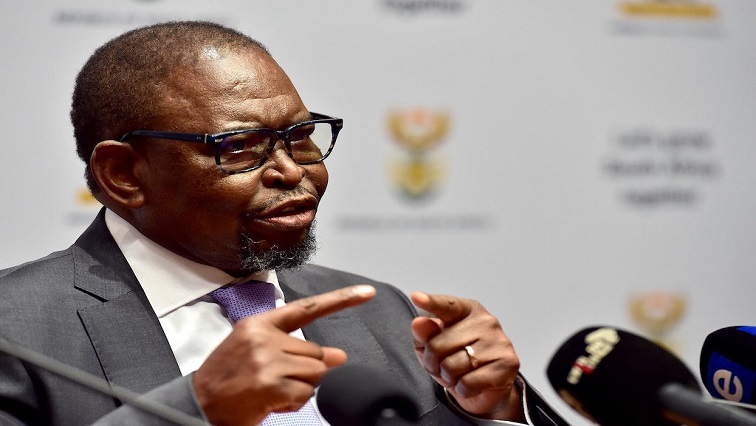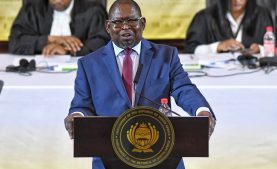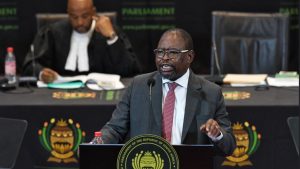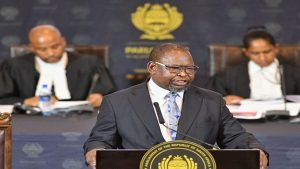Finance Minister Enoch Godongwana will have to balance the growing spending needs against weaker revenue streams when he presents his Medium-Term Budget Policy Statement on Wednesday.
Government finances are under pressure as a result of the weak economy leading to lower revenue collection. Economists say taxpayers are already under pressure and 2024 — being an election year — it’s unlikely that government could signal increasing taxes, meaning it may have to borrow more to supplement the budget shortfall.
Many of the things that could go wrong in the economy have gone wrong, exposing government finances to a number of risks. The economy is growing at weaker-than-expected levels, while the cost of borrowing has increased for both consumers and the state amid a high inflation environment.
On average, 20 cents of every rand collected in government revenue each year is needed to service debt. Financial conditions at State Owned Enterprises have worsened and the public sector wage bill has grown more than expected, while there are growing social security needs.
The Finance Minister will have to present a plan of government for the next three years that will bring credibility to public finances.
Economists say the Medium-term Budget Policy Statement will likely see some deterioration in terms of government revenue, expenditure and borrowing.
Senior Economist at Nedbank Isaac Matshego says ‘The Minister is going to be in a tight bind because he’ll have to strike a good balance between the very high expenditure needs and falling revenue collections. On the expenditure side, we know that the main concern will be the higher-than-budgeted public sector wage bill. In the February budget, the budgeted amount was an increase of 1.6%. We saw a settlement of 7.5% which adds almost R38 billion to the wage bill alone and there are other expenditure increases. We know that the debt service bill is higher than expected due to higher interest rates and of course, the government having to borrow more on the income side. As you alluded to its revenue collections are under pressure company taxes which account for about 36% of tax collection are dropping at double-digit numbers compared to last year.”
Minister Enoch Godongwana will on Wednesday deliver the medium-term budget policy statement
It’s estimated that the revenue shortfall will be as much as R60 billion. Revenue collection is negatively affected by load shedding impacting economic performance. Consumers facing the cost-of-living pressures will also translate to less revenue at the municipal level.
Senior Economist at PWC Xhanti Payi says, “Many municipalities and local governments have unfunded budgets. There are a lot of things that they need to get done in the next 3 years that they do not have revenue for, especially, because many of their customers have gone off the grid for example for water and electricity. And also a lot of their customers also are unable to pay given the consumer pressure that is being faced. Municipalities are struggling and will depend on the state and of course, we know those contingent liabilities that the government has committed to supporting to pay unpaid bills by Eskom customers there are also concerns around Transnet. We understand Transnet is going to ask for a bailout because they are also not making revenue targets while their debt levels are quite high.”
Godongwana has already indicated the need to implement cost-cutting measures to bring sustainability to government finances. Economists, however, warn that cutting infrastructure spending could have a negative effect on growth in the long run.
Visiting Professor at Wits Business School, Jannie Rossouw says, “If people ask what can be done, for the government to save money, we have to start with the government to cut the number of cabinet positions and ministries and at the same time reduce the number of government departments, in my view we must start with the department of public enterprises because that does not really help to get state-owned enterprises in better shape, does not help to turn them around and really I have to doubt the reason why that department exists at all.”
It’s expected the budget deficit will be higher than what was estimated in February. In the February Budget, the National Treasury had said it expected that the budget deficit for this financial year will be 4% of GDP, But Economists now say this is unrealistic, and that it will likely rise to at least 5% of GDP.
Minister must focus on other economic growth measures: Roodt






